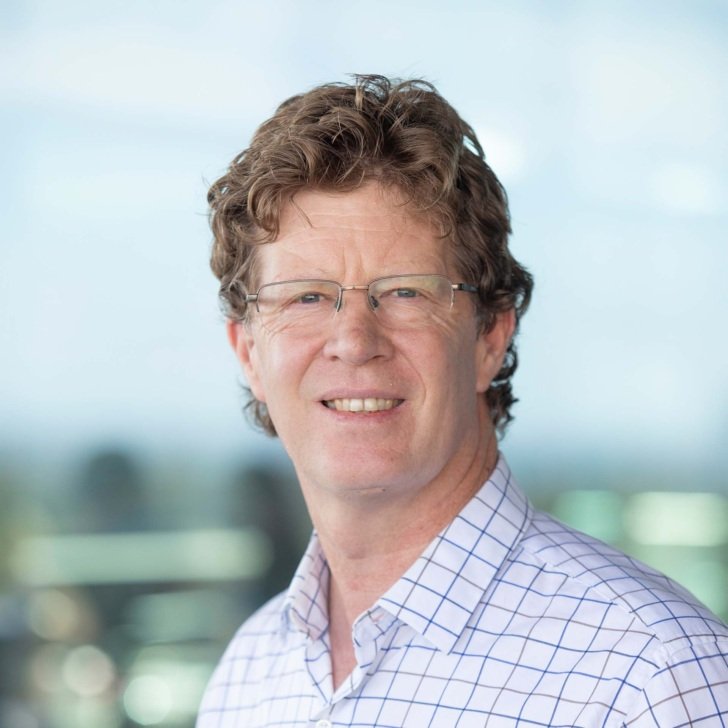Professor Christopher Reid
BPharm, BSci (Hons), PhD
Group Head
Location
Parkville Campus
30 Royal Parade
Parkville Victoria 3052
Research group
Neurophysiology of Excitable Networks Group

Biography
Professor Chris Reid is Lead of the Epilepsy and Neurodevelopment Research Priority, member of Faculty and Head of the Neurophysiology of Excitable Networks Laboratory at The Florey. He is a translational neuroscientist and leads a multidisciplinary team that investigates the molecular and cellular causes of epilepsy.
His team includes 3 research fellows, 3 PhD students and a Research Assistant. Key work includes developing and characterising new genetic rodent models of epilepsy and identifying new molecular targets for treating this devastating disease. This includes roles of ‘pacemaker’ hyperpolarisation-activated cyclic nucleotide–gated (HCN) channels in seizure susceptibility.
Professor Reid has strong engagement with industry and clinical partners providing a translational path. This includes past collaborations with the BioCurate and CSL. He also contributes significantly to the neuroscience community acting as Director of the Australian Course in Advanced Neuroscience (from 2020) and sitting on International League Against Epilepsy (ILAE) and American Epilepsy Society (AES) Genetic Task Forces.
His vision is to continue to drive pre-clinical programs that will create and validate therapeutic strategies targeted at ion channels in epilepsy and other neurological disorders.
Resources
- New targets for epilepsy treatment podcast – Professor Reid discusses developing new drugs for epilepsy, focusing on both genetics and small molecules, to treat more people with epilepsy
Key collaborators
- Professor Rikke S Møller- University of Southern Denmark
- Professor Samuel Berkovic – Epilepsy Research Centre
- Professor Ingrid Scheffer – Epilepsy Research Centre
- Professor Michael Hildebrand – The University of Melbourne
- Professor Chris Semsarian – Centenary Institute
- Dr Richard Bagnall – Centenary Institute
- Professor Steve Petrou – The Florey
- Professor Mary Collins – The University of Sydney
- Associate Professor Phillip Ahring – The University of Sydney
- Professor Clive May – The Florey Institute
- Associate Professor Yugeesh Lankadeva – The Florey
- Dr Lindsea Booth – The Florey Institute
- Professor Paul Lockhart – Murdoch Children’s Research Institute
- Dr Katherine Howell – Murdoch Children’s Research Institute
- Associate Professor Laura Jacobson – The Florey
- Professor Bang Bui – The University of Melbourne
- Dr Marlene Hao – The University of Melbourne
- Professor Andrew Lawrence – The Florey
Career highlights
Current roles
- Research Lead, Epilepsy Mission, The Florey
- Head and Faculty Member, Neurophysiology of Excitable Networks Group, The Florey
- Director of the Australian Course in Advanced Neuroscience (2020-present)
- Associate Editor- Neurochemical Research
- Guest Editor- Journal of Neurochemistry (Special Issue: Ion channels and genetic epilepsy)
Past roles
- Chair of 3 International League Against Epilepsy (ILAE) and American Epilepsy Society (AES) Task Forces
- Chair of the Seminar Series Committee (2016-2020)
- Chair of Graduate Research Committee, The Florey (2013-2016)
- Chair of the Molecular and Cellular Neuroscience Module, PhD Neuroscience Course (2009-2014)
Research projects
Awards and achievements
- 2023-2026 – Ideas Grants (CIA): Testing a preventative strategy for sudden unexpected death in epilepsy (SUDEP) in mouse models based on human genetics ($917,003)
- 2022-2025 – MRFF Cardiovascular Health Mission (CIA): Treating the impact of seizures on cardiac dysfunction to reduce death ($847,480)
- 2023-2026 – Ideas Grants (CIC): GABA-A receptor variants in developmental and epileptic encephalopathy: a bench to bedside approach
- 2023-2027 – GABA-A receptor variants in DEE (~$4.3M)
- 2016–2020 – Program Grant Human Epilepsy: Understanding biology to improve outcomes ($16 million)
- 2020-2021 – CURE Epilepsy Award: Genetic-based cardiac arrythmia as a risk factor for SUDEP (US$250,000)
- 2018-2020 – Project Grant (CIA): HCN channels: a novel antiepileptic target ($570,000)
